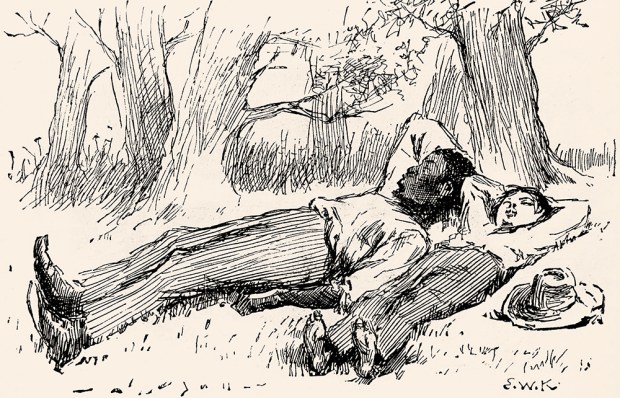Lisa McInerney likes the rule of three. Three novels set in Cork structured around sex, drugs and rock’n’roll and, within that, ‘smoke, coke and yokes [ecstasy], St Paddy’s modern trinity’. The Rules of Revelation follows her debut, The Glorious Heresies (winner of the 2016 Women’s Prize; in its focus on the relationship between teenagers Ryan and Karine, it represents the sex component) and its sequel, The Blood Miracles (drugs, 2017). It reprises Glorious Heresies’ movement between multiple characters, Ryan Cusack (centre of Blood Miracles) seen through them.
Ryan has returned to Cork, where bad blood waits for him, barely congealed and threatening, darkly, to ooze out at any moment. Ostensibly he’s back to make an album (hence rock’n’roll) with his band Lord Urchin, but it also means a home-coming to Karine and their infant son, and hopes for a return to, or a development of, the heart-rending first love they stumbled through in Glorious Heresies. A form of private commentary addressed to Karine runs through the book, reflecting on the long arc of their entanglement — which McInerney slightly over-refers to as their ‘history’.
The characters are self-consciously Irish, and go so far as to point it out to one another: ‘Jesus, you’re so fucking Irish’, is the response to the suggestion that people can make their own minds up about Ryan’s past. ‘It was said that Ireland was reinventing herself,’ the thwarted matriarch Maureen Phelan muses as she charges around the city in a vague rage: ‘It was a funny time to be Irish. There weren’t even generations between flips.’
The effect is of a novel archly, almost swaggeringly, self-aware, which teases wryly with offerings of Irish Issue bingo: Maureen and her teenage granddaughter have a disagreement about the Magdalene Laundries — in the face of the adolescent one-word reaction ‘sad’, Maureen thinks, furiously, ‘in her guts, she must empathise with the women on the telly [Magdalene survivors]. She could still taste that history as salt in sea air. She was too close to it to stop at sad’.
It was 2019 and a funny time to be Irish. At no time in history was it not a funny time to be Irish… What could you do except keep trying to tell the story of it? To be young and gifted and damp.
It’s true that ‘New Irish’ writing has become a distinct sector of a literary market, controlled overwhelmingly from London, with authors such as Megan Nolan, Naoise Dolan, Eimear McBride and Sally Rooney being grouped together. To be New Irish is to address Ireland post-crash, and the results are often scathing, intelligent treatments of class. McInerney does not disappoint but, unlike her peers, she meets this taxonomising impulse head-on, and the result is a state-of-the-city, rather than nation, novel, sardonic, sexy, witty, lanky with a winsome smirk, which breaks into a long-stride run for the pure pleasure of it — and it is a pleasure to observe.
Got something to add? Join the discussion and comment below.
Get 10 issues for just $10
Subscribe to The Spectator Australia today for the next 10 magazine issues, plus full online access, for just $10.
You might disagree with half of it, but you’ll enjoy reading all of it. Try your first month for free, then just $2 a week for the remainder of your first year.














Comments
Don't miss out
Join the conversation with other Spectator Australia readers. Subscribe to leave a comment.
SUBSCRIBEAlready a subscriber? Log in